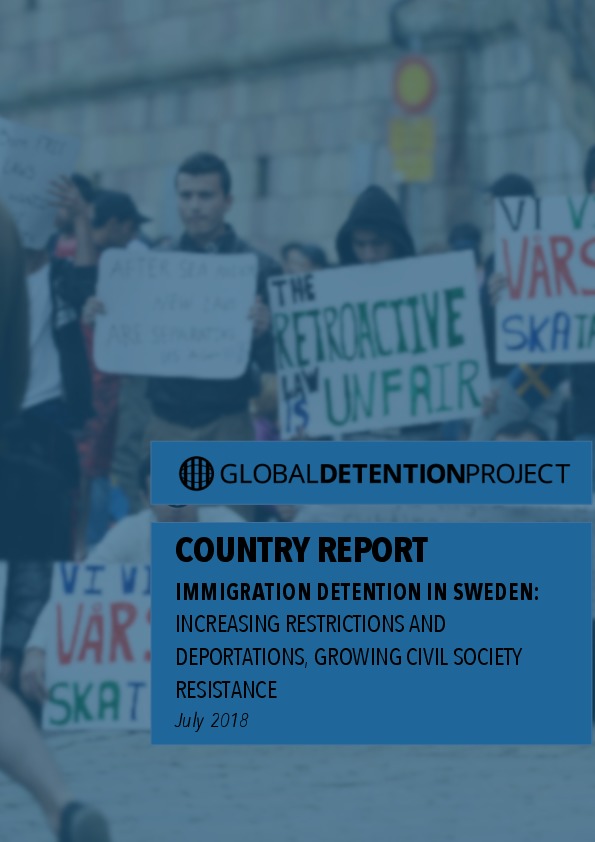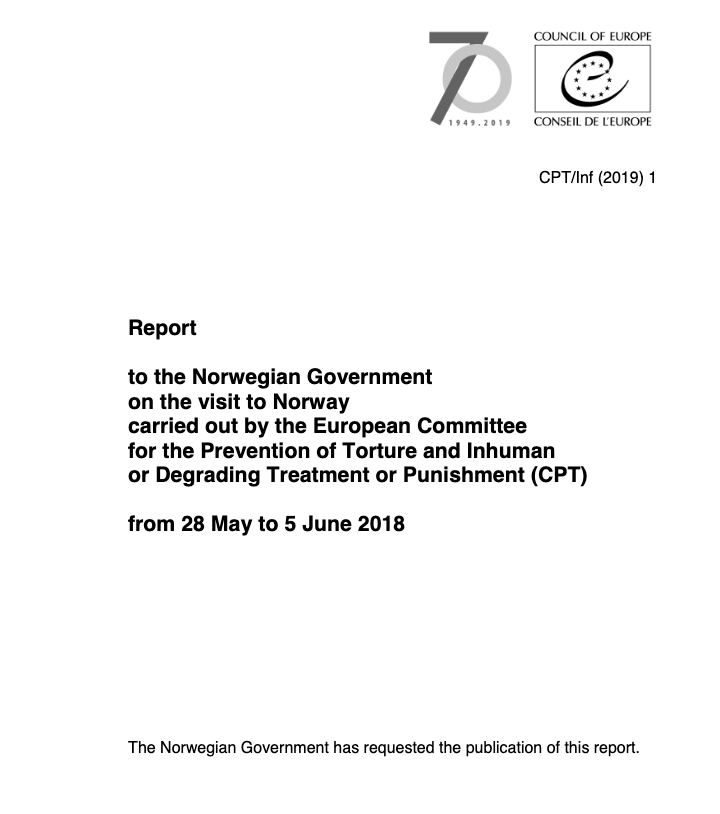B. Karreç Detention Centre for Foreigners; (Read full CPT report)31. For the first time, the delegation visited the country’s sole detention centre for foreigners inKarreç. The Centre is located in the vicinity of Durres and was opened in 2010. With an officialcapacity of 125 places, it comprised three detention units (Nos. 1 and 3 for […]
Immigration detention
Temporary Accommodation Centre (from report of the European Committee for the Prevention of Torture 2018 visit to Georgia)
B. Establishments for foreign nationals deprived of their liberty under aliens legislation; (Read full CPT report)32. The CPT’s delegation carried out a first-time visit to Georgia’s only immigration detentionfacility (opened in 2014), the Temporary Accommodation Centre of the Migration Department ofthe Ministry of Internal Affairs (hereafter, TAC or the Centre). Located in Varketili district ofTbilisi, […]

Immigration Detention in Libya: “A Human Rights Crisis”
Libya is notoriously perilous for refugees, asylum seekers, and migrants, who often suffer a litany of abuses, including at the country’s numerous detention facilities. Conditions at these facilities, many of which are under the control of militias, are deplorable. There are frequent shortages of water and food; over-crowding is endemic; detainees can experience physical mistreatment […]

Immigration Detention in Sweden: Increasing Restrictions and Deportations, Growing Civil Society Resistance
Sweden used to be lauded for its comparatively humane treatment of asylum seekers and undocumented migrants. However, since the onset of the “refugee crisis,” the country has introduced a series of restrictive immigration control measures and the domestic political environment has become increasingly hostile. Even as the numbers of refugee applicants have steadily fallen, the […]

Global Detention Project Annual Report 2017
Throughout 2018, the Global Detention Project’s researchers documented the conditions non-citizens face in detention facilities around the world to ensure that systematic information about the treatment migrants, refugees, and asylum seekers face in detention is made available to advocates and so that governments can be held accountable. […]

Trandum Police Immigration Detention Centre (from report of the European Committee for the Prevention of Torture 2018 visit to Norway)
Trandum Police Immigration Detention Centre (Read full CPT report) 38. The delegation carried out a follow-up visit33 to Trandum Police Immigration DetentionCentre (hereinafter: “Trandum Detention Centre”), which remains the only immigration detentioncentre in Norway.34 The current policy in Norway is to accommodate asylum-seekers only in openreception centres; thus, Trandum Detention Centre functions primarily as a […]

Immigration Detention in Denmark: Where Officials Celebrate the Deprivation of Liberty of “Rejected Asylum Seekers”
Denmark has pursued increasingly restrictive immigration and asylum policies. During the past three years, the country has adopted some 70 immigration-related amendments aimed at intensifying restrictions, dramatically cut back its asylum recognition rate, and called for detaining as many failed refugees as possible. Observers have repeatedly criticised the penitentiary-like conditions of Denmark’s main immigration detention […]

The Effectiveness of the EU Return Policy at All Costs: The Coercive Use of Administrative Pre-Removal Detention
In February 2017, the European Commission (EC) adopted a specific Recommendation to guide EU states in the interpretation of the Returns Directive, stressing that detention can be essential in enhancing the effectiveness of the return system. However, despite its administrative label, pre-removal detention as interpreted by the EC contains punitive elements. GDP Researcher Izabella Majcher […]
Critiquing Zones of Exception: Actor-Oriented Approaches Explaining the Rise of Immigration Detention
Immigration policy has catapulted to the forefront of public debate around the world as governments resort to increasingly restrictive measures to block migrants and refugees. While severe border policies are by no means new, this surge in migration control raises questions about the forces driving national policies. This chapter in the new book Immigration Policy in the Age of Punishment advances an actor-oriented analysis that views detention systems as complex organisations that rely on deeply rooted institutional structures to buttress their existence, multiple sources of financing to grow operations, and support from a broad array of social actors. […]

Immigration Detention in Luxembourg: Systematic Deprivation of Liberty
Immigration Detention in Luxembourg: Although Luxembourg has a very small immigration detention system, the number of detainees has risen in recent years. Since opening a dedicated detention facility in 2011, observers have noted a general improvement in material conditions. On the other hand, detention appears to be systematically applied as officials regularly conclude that apprehended migrants […]




